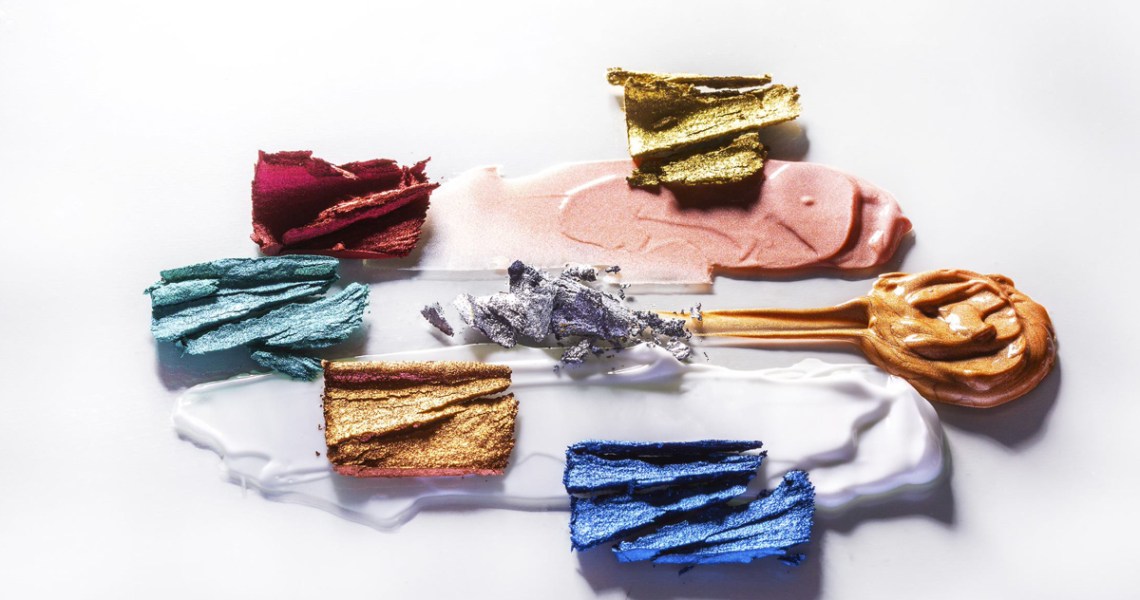Sponsored by Cosmetica Laboratories Inc.
As digital channels have facilitated brand-building, the beauty industry has seen an explosion of new indie, celebrity- and influencer-centered product lines. On top of this, the focus has shifted to skincare and slowly blurred the lines between cosmetic categories.
Beauty consumers are educated shoppers, and to stay competitive and capture their attention, beauty brands must consider several factors when formulating their products. For example, clean and hybrid formulas are the baseline expectation in product development, with sustainability also critical to meeting consumer desires.
To unpack more about what the shopper wants and the beauty advertisers need to know about reaching them, in this Q&A, the Custom in-house agency at Glossy spoke with Maria Osorio, director of marketing and product development at Cosmetica Laboratories Inc. — a 30-year-old Canadian cosmetic manufacturing and custom innovation house. The topic: shifts in the beauty industry and what it takes to launch a cosmetic or skincare line.
Custom: Skincare has gained an increased market share in the beauty industry. Why do you think consumers have shifted some of their focus from makeup to skincare?
Maria Osorio: Skincare and makeup are constantly competing to be the top beauty category. Over the past few years, we’ve seen significant skincare growth as consumers have access to more educational resources focused on ingredients and formulas. Consumers only need to log in to TikTok to connect with industry professionals who talk about retinol, niacinamide and vitamin C the same way someone talks about the weather. These curious consumers are transforming the way brands communicate and sell, as skincare is a business built on trust. That is the reason why we see skinification, which is the presence of skincare ingredients, growing across multiple categories.
Custom: For anyone considering creating their own cosmetic or skincare line, how long does it generally take to create and/or develop a new beauty product? Can you share the steps that are involved in this process?
Ad position: web_incontent_pos1
Maria Osorio: That depends on the product, as well as many other factors from ingredient customization, texture preference, componentry and testing.
The product development process starts with thorough market and trend research from our marketing department, for example, to make sure we are making strategic decisions on where to spend our time and energy. Next, our product development team builds the concept based on data and strategic recommendations as well as each brand’s unique story. Once the concept is finalized, our research and innovation department brings the texture to life, and our packaging team proposes component choices. The formula is then rigorously tested, which includes stability, compatibility, pilot runs and even clinical and SPF testing. After all of the requirements are met, we receive the regulatory paperwork and transition to production where our modular technology approach assures what we call a “golden batch” that will give our customers the same results every time regardless of the size of the order. Once production is finalized and quality is assessed, our product is ready to go to the shelf and into the hands of the consumer.
Custom: How do you handle market fluctuations and adjust for new consumer demands?
Maria Osorio: As a result of the market fluctuations, our formulas are constantly upgraded to meet future consumer needs and demands. We recently hosted a multi-day pop-up, Formulab, in New York City to share some of these innovations. The event showcased the evolution of our formulations as well as a small innovation collection presenting unexpected new formats and exciting textures with clean, sustainable and upcycled ingredients. The product selection was a curated sample of our best-in-class skincare and makeup library enabling our customers to handpick their samples.
Celebrity makeup artist Lottie hosted an exclusive demonstration using her favorite formulas from our lab. Some of the most exciting products featured were our natural complexion-enhancing foundations.
Ad position: web_incontent_pos2
Custom: Over the past few years we’ve seen more and more creators expand their brands into cosmetic lines. As a strategic partner in creating product collections, what do you find is the biggest misconception people have when beginning their brand journey?
Maria Osorio: The biggest misconception is for people to think that it is possible to be successful in developing cosmetics with a cookie-cutter approach. Each brand and consumer is different. So, in order to create an award-winning product, significant research, exploration and back-and-forth discussions between the brand and the manufacturer are required for a successful outcome. The most essential step is to provide a personalized approach for each of your customers, making insightful recommendations and guiding them through their product journey. That’s why our client portfolio is so broad. We work with the world’s most renowned brands and contribute to shaping the future of leading beauty products.
Custom: What do you think will be the top trends in skincare and color moving into 2023 and beyond?
Maria Osorio: The skin-first movement will be one of the main drivers for all beauty categories, and this does not only mean adding skincare ingredients to formulas. Consumers are seeking a balance between pleasure and wellness, mixing self-care indulgent rituals with a deep concern for their health. This means hyper-sensorial, innovative textures and formats, combined with naturally derived, good-for-you, clean and science-based ingredients.
Sustainable and earth-conscious formulas will grow in upcoming years, as these knowledgeable consumers are constantly measuring the impact of their purchasing behaviors. For packaging, we will see a lot of refillable, mono-material and recyclable components. Brands will disclose more information such as ingredient traceability, ethical sourcing and elevated CRM programs to gain a competitive advantage.
Finally, there’s a significant demand for cruelty-free color cosmetics which is expected to keep growing over the next five years. Ingredient companies around the world are focusing their R&D efforts on developing high-performance, safe and clean, vegan pigments.
Sponsored By: Cosmetica Labs


